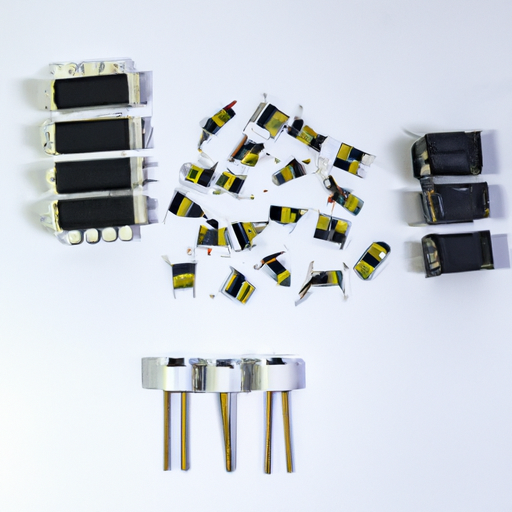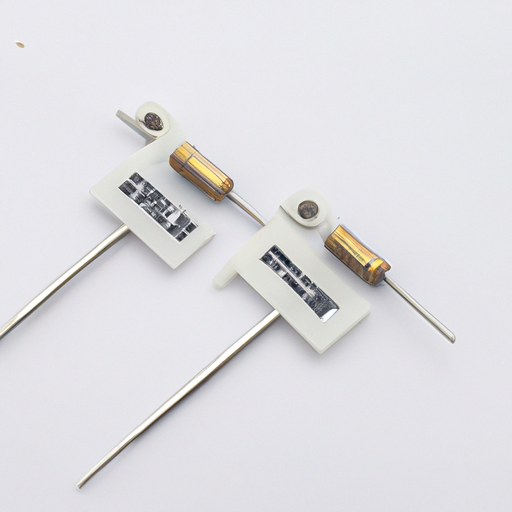What is the Purchase Price of the Latest Load Resistor?
I. Introduction
In the realm of electrical engineering, load resistors play a pivotal role in ensuring the functionality and reliability of various electronic systems. A load resistor is a passive electrical component that provides a specific resistance to an electrical circuit, allowing for the safe testing and operation of power sources and electronic devices. Their importance cannot be overstated, as they are integral to circuit testing, power electronics, and applications across diverse industries, including automotive and aerospace.
This article aims to explore the purchase price of the latest load resistors, delving into the factors that influence their pricing, current market trends, and future predictions. Understanding these elements is crucial for engineers, technicians, and hobbyists alike, as it enables informed purchasing decisions.
II. Overview of Load Resistors
A. Functionality and Applications
Load resistors serve several essential functions in electrical circuits. They are primarily used in circuit testing, where they simulate the load that a power source will encounter in real-world applications. This allows engineers to assess the performance and stability of power supplies and other electronic components.
In power electronics, load resistors are crucial for managing energy dissipation and ensuring that circuits operate within safe limits. They are also widely used in automotive and aerospace industries, where they help in testing and validating electronic control units and other critical systems.
B. Types of Load Resistors
Load resistors can be categorized into three main types:
1. **Fixed Load Resistors**: These resistors have a predetermined resistance value and are commonly used in applications where a constant load is required.
2. **Variable Load Resistors**: Also known as rheostats or potentiometers, these resistors allow users to adjust the resistance value, making them suitable for applications that require flexibility.
3. **Specialty Load Resistors**: These are designed for specific applications, such as high-power or high-frequency environments, and often come with unique specifications to meet particular needs.
III. Factors Influencing the Purchase Price of Load Resistors
Several factors contribute to the pricing of load resistors, making it essential to consider these elements when making a purchase.
A. Material Composition
The materials used in manufacturing load resistors significantly impact their performance and cost. Common materials include carbon, metal film, and wire-wound elements. Each material has its advantages and disadvantages, affecting both the resistor's durability and its price. For instance, metal film resistors tend to offer better precision and stability but may come at a higher cost compared to carbon resistors.
B. Power Rating and Specifications
Understanding power ratings is crucial when selecting a load resistor. The power rating indicates the maximum amount of power the resistor can handle without overheating. Higher power ratings typically result in higher prices, as they require more robust materials and construction. Additionally, specific specifications, such as tolerance and temperature coefficient, can also influence pricing.
C. Manufacturer Reputation
The reputation of the manufacturer plays a significant role in determining the price of load resistors. Established brands often command higher prices due to their perceived quality and reliability. Consumers may be willing to pay a premium for products from reputable manufacturers, knowing that they are likely to receive a reliable and well-tested component.
D. Market Demand and Supply
Market dynamics, including demand and supply, can lead to fluctuations in pricing. Trends in the electronics market, such as the increasing demand for electric vehicles and renewable energy systems, can drive up the prices of load resistors. Additionally, seasonal variations, such as increased demand during certain times of the year, can also affect pricing.
IV. Current Market Prices for Load Resistors
A. Price Range for Different Types of Load Resistors
The price of load resistors varies widely based on their type and specifications.
1. **Fixed Load Resistors**: These typically range from $1 to $50, depending on the power rating and material composition.
2. **Variable Load Resistors**: Prices for variable load resistors can range from $5 to $100, influenced by their adjustability and precision.
3. **Specialty Load Resistors**: These can be more expensive, often ranging from $20 to several hundred dollars, depending on their specific applications and performance characteristics.
B. Comparison of Prices from Various Manufacturers
When comparing prices, it is essential to consider both leading brands and budget options. Established manufacturers like Vishay, Ohmite, and TE Connectivity offer high-quality load resistors, often at a premium price. In contrast, lesser-known brands may provide more affordable options, but it is crucial to evaluate their reliability and performance.
C. Online vs. In-Store Pricing
The rise of e-commerce has transformed the way consumers purchase electronic components. Online shopping often provides a broader selection and competitive pricing, with many retailers offering discounts and promotions. However, local electronics stores may offer the advantage of immediate availability and personalized customer service, which can be beneficial for urgent projects.
V. Case Studies
A. Example 1: Purchase of a Fixed Load Resistor
Consider a scenario where an engineer needs a fixed load resistor with a power rating of 10W and a resistance of 100 ohms. After researching various suppliers, they find options ranging from $5 to $20. The engineer chooses a $15 resistor from a reputable manufacturer, ensuring reliability for their circuit testing application.
B. Example 2: Purchase of a Variable Load Resistor
In another case, a technician requires a variable load resistor for a prototype circuit. They find a high-quality potentiometer priced at $30, which allows for resistance adjustments between 0 and 500 ohms. The technician opts for this option due to its versatility and the manufacturer's strong reputation.
C. Example 3: Purchase of a Specialty Load Resistor
For a high-frequency application, an engineer needs a specialty load resistor designed for RF testing. They discover a suitable option priced at $150, which offers excellent performance characteristics. Although the price is higher, the engineer recognizes the importance of quality in their specific application.
VI. Future Trends in Load Resistor Pricing
A. Technological Advancements
As technology continues to evolve, so too will the design and manufacturing of load resistors. Innovations in materials and production techniques may lead to more efficient and cost-effective options, potentially lowering prices in the long run.
B. Sustainability and Eco-Friendly Materials
With a growing emphasis on sustainability, the demand for eco-friendly materials in electronic components is on the rise. While these materials may initially come at a premium, their long-term benefits could lead to a shift in pricing dynamics as manufacturers adapt to consumer preferences.
C. Global Market Influences
Economic factors, such as inflation and changes in international trade policies, can significantly impact the pricing of load resistors. As supply chains evolve and global markets fluctuate, consumers may see variations in pricing based on these external influences.
VII. Conclusion
In summary, understanding the purchase price of load resistors involves considering various factors, including material composition, power ratings, manufacturer reputation, and market dynamics. The current market offers a wide range of options, catering to different needs and budgets.
As technology advances and consumer preferences shift, the landscape of load resistor pricing will continue to evolve. For engineers, technicians, and hobbyists, staying informed about these trends is essential for making educated purchasing decisions.
Encouragement for further research and exploration in the field of load resistors will not only enhance understanding but also contribute to the development of more efficient and reliable electronic systems.
VIII. References
- Academic Journals and Articles
- Manufacturer Websites
- Industry Reports and Market Analysis
By exploring the intricacies of load resistor pricing, this article aims to equip readers with the knowledge necessary to navigate the market effectively and make informed choices in their electronic projects.












